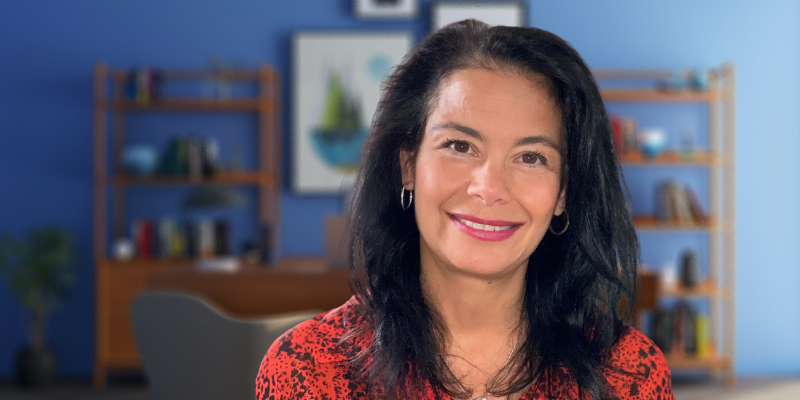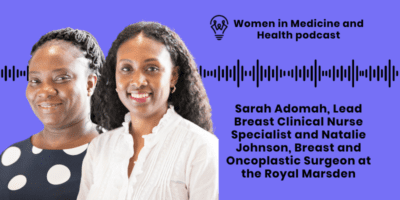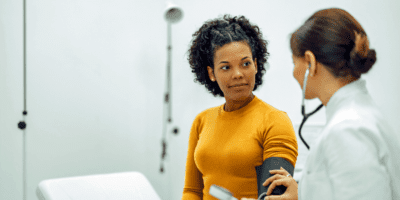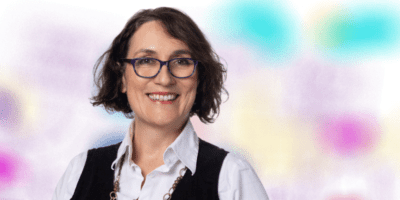Dr Annice Mukherjee is a consultant physician and endocrinologist who specialises in women’s health, hormones and menopause. She is a media ambassador for the Society for Endocrinology as well as sitting on the medical advisory council of the British Menopause Society. Annice is a consultant endocrinologist at Spire Manchester Hospital and at its clinic in Hale, in addition to doing academic work for Coventry University.
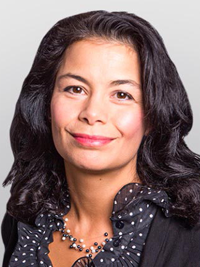
“Health is not black and white or binary. In this internet age everything is made to look simple online, but it isn’t! Sometimes solutions are not reached because we don’t think diversely enough.”
Educational background and career to date
I am a consultant physician and clinical endocrinologist. I qualified from the University of Manchester in 1992. I went on to qualify for my MSc from King’s College London in 1998 London and gained my MD (Doctor of Medicine) from the University of Manchester in 2008. The focus of this was on the quality of life and immune function consequences of severe pituitary disease.
I was a senior lecturer at University of Manchester until 2020, and I held an NHS consultant post at Salford Royal Hospital from 2007 to 2019, but I am now retired from the NHS after 27 years’ service.
My work today: A matter of balance
I continue to do clinical work at Spire Manchester Hospital along with my media, social media and charity work. I am a media ambassador for the Society for Endocrinology and I sit on the medical advisory council of the British Menopause Society (BMS) as well as doing some academic work with Coventry University.
I have held elected national positions on the Programme and Clinical Committees for the Society for Endocrinology. I contribute to the Reproductive Endocrinology and Biology Endocrine Network, the Society’s public information website, You and Your Hormones and its magazine The Endocrinologist.
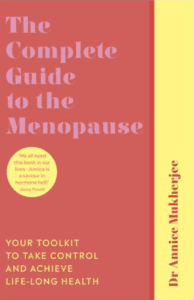
My role as a consultant endocrinologist involves outpatient clinic consultations, biochemical and radiological investigations, day case procedures, and multidisciplinary working with other specialist consultant colleagues, such as GPs and allied health professionals.
Breaking down taboos around menopause
As an endocrinologist (hormone specialist) I have expertise in personalised care for all hormone health issues, including menopause. I am a clinician predominantly and in my consultations I help to explain the causes and severity of symptoms, arrange any necessary investigations and treatment as appropriate.
For menopause a range of treatments are helpful — holistic as well as pharmacological. My research time is limited but my work mainly relates to lifestyle interventions for the prevention of future disease, including diabetes.
Cutting through the noise
Impartial national and international organisations are the safest sources of information in a space where there is much contradictory information. In the UK, the Society for Endocrinology and British Menopause Society both have public information websites (You and Your Hormones and Women’s Health Concern), which I recommend.
Let’s think more diversely
Health is not black and white or binary. In this internet age, everything is made to look simple online, but it isn’t! Sometimes solutions are not reached because we don’t think diversely enough.
There are many challenges here. From the exclusion of ethnic minority groups to non-binary and trans women, a lot more work needs to be done. I think this education needs to be at grassroots level, through GP practices. Some geographical areas need more input than others. National campaigns capture certain subgroups but persistently leave behind many others.
Inspiration and support from my role models
My role models are my research mentor, Professor Steve Shalet, who I worked with at the Christie Hospital in Manchester, and also my senior consultant colleague at Salford Royal NHS Foundation Trust, Dr Helen Buckler, who was a reproductive endocrinologist. Both inspired and supported me to be where I am now. I have worked with, and continue to work with many inspiring colleagues, too many to mention here.
Coming up next

I look forward to a time when raising awareness about menopause becomes (appropriately) empowering for women, rather than all doom and gloom!
Reference links
- https://www.linkedin.com/in/annice-mukherjee-a58a7762/
- https://www.hormonewise.co.uk/
- https://twitter.com/annicemukherjee
- https://www.facebook.com/thehormonedoc/
- https://www.instagram.com/the.hormone.doc/
- https://www.endocrinology.org/
- https://twitter.com/Soc_Endo
- https://www.facebook.com/SocietyforEndocrinology

